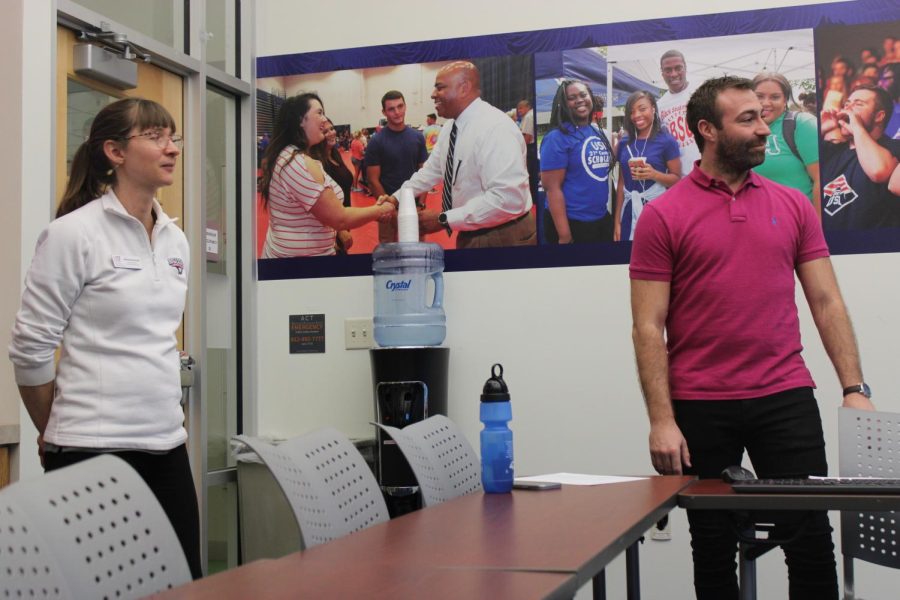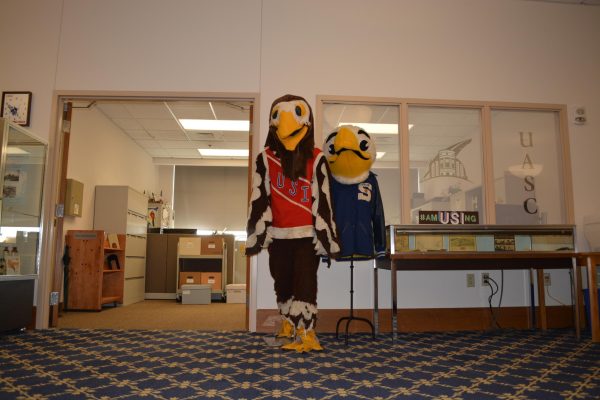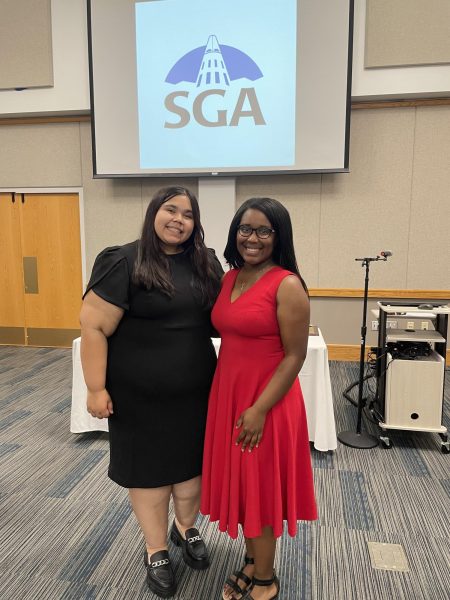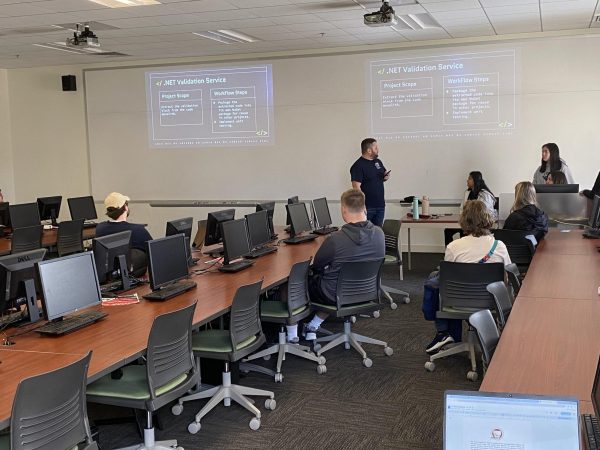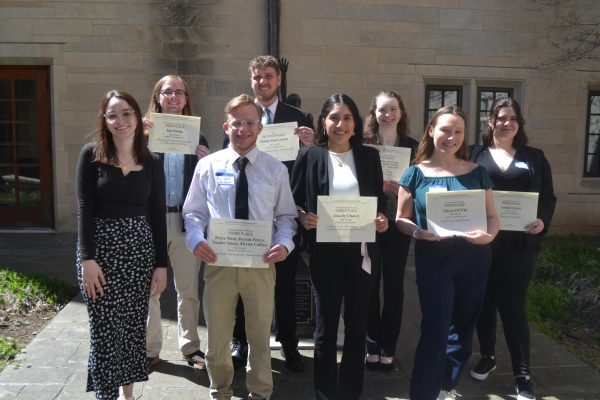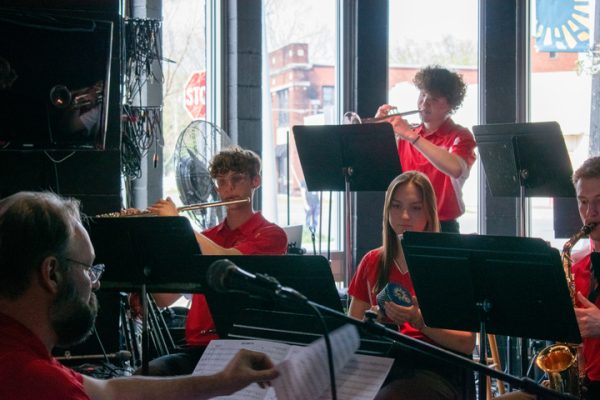Annual Study Abroad sessions begin for the spring semester
Melissa Gonnerman, associate director of the Center for International Programs, and Michael Simcock, graduate assistant in the Center for International Programs, give a presentation about the Study Abroad program Jan. 18. The Study Abroad program holds weekly informational sessions in the University Center East from 3-4 p.m.
January 31, 2023
The Study Abroad program has started its spring semester weekly informational sessions to recruit students to the program.
The first Study Abroad Information Session took place in University Center East from 3-4 p.m. Jan. 18. Study Abroad staff was available to answer any questions students may have about the program. The dates for future sessions are listed on the Study Abroad Instagram page.
“Study Abroad is an opportunity for any USI student to take classes towards their degree or an internship to apply towards their degree,” said Melissa Gonnerman, associate director of the Center for International Programs.
“Students who study abroad gain the skills that employers are looking for,” Gonnerman said.
Gonnerman said all majors can study abroad. She said USI is connected with over 60 countries and has different price points and scholarship opportunities for students.
Students can take a full semester to study abroad, or they can choose to go over the summer.
Michael Simcock, graduate assistant in the Center for International Programs, said most undergraduate students feel intimidated being in a different country by themselves.
There is a support structure there for you. It’s not something you should shy away from.
— Michael Simcock, graduate assistant in the Center for International Programs
“In reality, you’re not by yourself,” Simcock said. “There is a support structure there for you. It’s not something you should shy away from.”
Gonnerman said students should plan ahead before studying abroad.
“See what’s out there so you can begin to plan ahead for locations, courses, budget points that seem like a good fit for you,” Gonnerman said.
Gonnerman said interest in the program is back to where it was before COVID-19, but the number of participants is still down from before the pandemic. She said the war in Ukraine has made some students uncomfortable with fears it could expand.
Simcock said the Study Abroad program has different levels for the locations to determine safety.
“Through our search and through our partner searches, we operate on a one to four level of security and safety in terms of, okay, it’s safe to one and two-level places,” Simcock said. “Four is a no, we would completely discourage that. Three being it’s going to limit your travel in terms of your other cultural experiences that you may get from a one or two-level destination.”
Students interested in entering the program said they were excited about the thought of leaving the country.
Just the thought of being a student in a different country and experiencing the environments of being somewhere else, it just seemed really exciting,”
— Jacob Richerson, freshman psychology major
“Just the thought of being a student in a different country and experiencing the environments of being somewhere else, it just seemed really exciting,” said Jacob Richerson, freshman psychology major.
“I just think it’d be a really good experience and, obviously, I love traveling,” said Alyssa Dusendang, freshman dental hygiene major. “Every time I go somewhere, it makes me feel so happy.”
For more information about the Study Abroad program, students can visit Gonnerman or Simcock in the international center or go online to arrange a meeting with them.

